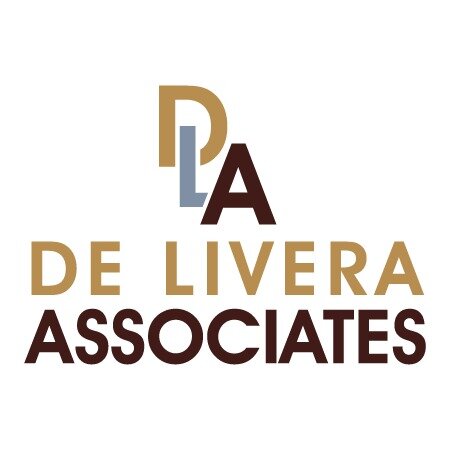Best Creditor Lawyers in Sri Lanka
Share your needs with us, get contacted by law firms.
Free. Takes 2 min.
Or refine your search by selecting a city:
List of the best lawyers in Sri Lanka
About Creditor Law in Sri Lanka
Creditor law in Sri Lanka oversees the rights and obligations associated with debts owed between creditors and debtors. It involves the regulatory framework that governs how debts are collected, the rights of creditors to recover debts, and the protections afforded to debtors to ensure fair treatment. This area of law aims to balance the interests of creditors seeking repayment and debtors' rights to avoid undue harassment or unfair practices. Legal measures, such as the Prescription Ordinance, Debt Recovery (Special Provisions) Act, and other financial regulations, are critical in this field.
Why You May Need a Lawyer
There are various situations where legal assistance related to creditor matters can be essential. Individuals or businesses may need legal help if they face issues with collecting debts, negotiating payment plans, or disputing a debt claim. Similarly, if a person or entity is being pursued for debt repayment and needs to understand their rights or contest the creditor's claims, legal guidance is crucial. Additionally, businesses may require a lawyer to draft airtight contractual agreements that cover credit terms, helping minimize future disputes. Expert legal support ensures compliance with the relevant laws while protecting your interests, whether you are a creditor or a debtor.
Local Laws Overview
In Sri Lanka, several laws and regulations pertain to creditor rights and obligations:
- Prescription Ordinance: This law affects the time limits within which a creditor must act to recover a debt. Generally, ordinary debts must be pursued within six years from when they become due.
- Debt Recovery (Special Provisions) Act: Designed to expedite the recovery of debts by financial institutions, this act provides streamlined processes for obtaining summary judgments against debtors in default.
- Consumer Affairs Authority Act: Provides protection to consumers against unfair trade practices, including misleading representations related to credit.
- Banking Act and Financial Company Regulations: These govern how financial institutions offer credit and manage recovery processes, emphasizing standards for fair practice and transparency.
Frequently Asked Questions
What should I do if someone owes me money and is not paying?
Initially, attempt to resolve the matter amicably through direct communication. If unsuccessful, consider engaging a lawyer to send a legal notice or pursuing the matter in court.
How long do I have to file a lawsuit to recover a debt?
Under the Prescription Ordinance, the general time limit to file a lawsuit for debt recovery is six years from the time the debt becomes due.
Can a creditor charge interest on the unpaid amount?
Yes, creditors can charge interest on outstanding debts, provided it is stipulated in the initial credit agreement or loan contract.
What actions are creditors not allowed to take when recovering a debt?
Creditors must not engage in harassment, use misleading practices, or violate the privacy rights of debtors during the recovery process.
Can a debt collector contact me at my workplace?
Debt collectors generally should not contact you at your workplace if you have advised them not to do so, unless court permission has been granted.
What is a summary judgment in debt recovery?
It is a judicial decision made without a full trial process, usually applicable when there is clear evidence of debt default, streamlining debt recovery for creditors.
How can I dispute a debt claim?
If you believe a debt claim is incorrect, you can formally contest it by providing evidence or arguments against the claim in a court of law with the help of a lawyer.
What is the procedure for filing a debt recovery lawsuit?
The procedure typically involves filing a plaint in court, serving notice to the debtor, and presenting evidence to obtain a decree for debt recovery.
Can I negotiate a repayment plan if I cannot make the payments?
Yes, negotiation for a repayment plan is often possible and advisable. It is beneficial to communicate with the creditor or seek legal advice to facilitate this process.
What happens if a debtor files for bankruptcy?
In the case of bankruptcy, a structured payment process may be established by the court, and creditors may receive part or all of the owed amount depending on the debtor’s assets and liabilities.
Additional Resources
Several resources can provide further assistance with creditor-related issues in Sri Lanka:
- The Central Bank of Sri Lanka provides guidelines and regulations related to financial transactions.
- The Consumer Affairs Authority for issues related to consumer credit rights.
- Local legal aid services for those seeking financial assistance in obtaining legal advice.
Next Steps
Should you find yourself needing legal assistance in a creditor-related matter, consider the following steps:
- Consult with a qualified legal professional familiar with Sri Lankan creditor law to assess your situation.
- Gather and organize all relevant documentation, such as credit agreements, payment records, and any correspondence related to the matter.
- Explore mediation or negotiation as initial steps before proceeding to litigation, if advisable.
- File a complaint or lawsuit within the relevant time limits if necessary, with legal guidance.
Lawzana helps you find the best lawyers and law firms in Sri Lanka through a curated and pre-screened list of qualified legal professionals. Our platform offers rankings and detailed profiles of attorneys and law firms, allowing you to compare based on practice areas, including Creditor, experience, and client feedback.
Each profile includes a description of the firm's areas of practice, client reviews, team members and partners, year of establishment, spoken languages, office locations, contact information, social media presence, and any published articles or resources. Most firms on our platform speak English and are experienced in both local and international legal matters.
Get a quote from top-rated law firms in Sri Lanka — quickly, securely, and without unnecessary hassle.
Disclaimer:
The information provided on this page is for general informational purposes only and does not constitute legal advice. While we strive to ensure the accuracy and relevance of the content, legal information may change over time, and interpretations of the law can vary. You should always consult with a qualified legal professional for advice specific to your situation.
We disclaim all liability for actions taken or not taken based on the content of this page. If you believe any information is incorrect or outdated, please contact us, and we will review and update it where appropriate.
Browse creditor law firms by city in Sri Lanka
Refine your search by selecting a city.











